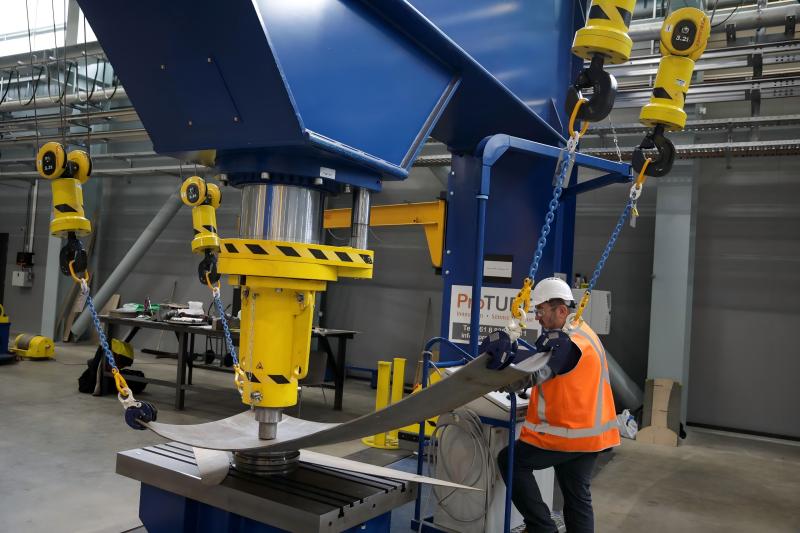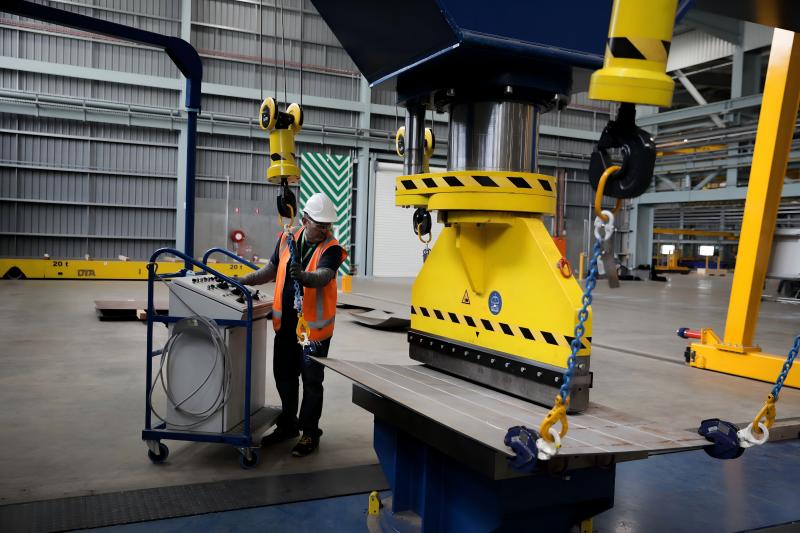Hub di documentazione
Manuali tecnici e guide complete per aiutarti a padroneggiare le macchine HARSLE e ottimizzare l'efficienza della lavorazione dei metalli
In che modo le presse idrauliche migliorano l'efficienza nell'industria cantieristica navale?
When it comes to modern shipbuilding, precision, strength, and productivity are the driving forces behind success. Hydraulic presses in shipbuilding industry play a crucial role in achieving these goals by enabling manufacturers to shape large metal sheets and heavy structural parts with accuracy and consistency. If you’re wondering how these machines improve efficiency, reduce production costs, and support the building of durable vessels, you’re in the right place. In this article, I’ll guide you through their key applications, benefits, and practical uses in shipbuilding.
Key Applications of Hydraulic Presses in Shipbuilding Industry
Forming Large Metal Plates

Shipbuilding requires bending and shaping massive steel plates into hulls, decks, and bulkheads. Hydraulic presses deliver the tonnage needed to form these thick materials while maintaining precise dimensions, ensuring every component fits perfectly into the overall ship structure.
Precision Punching and Cutting
Apart from bending, hydraulic presses are also applied in punching and cutting precise openings for ship windows, hatches, and complex pipe systems. This minimizes manual effort, prevents costly mistakes, and significantly accelerates overall shipbuilding production cycles.
Supporting Heavy-Duty Fabrication
Hydraulic presses provide consistent force across wide workpieces, which is essential when producing large-scale ship components. Whether it’s forming beams, stiffeners, or custom parts, these machines make sure every piece meets strict quality standards.
Advantages of Presse idrauliche in Shipbuilding
High Tonnage for Large Components

Shipbuilding requires machinery capable of exerting extraordinary levels of force to shape and form massive components. Hydraulic presses are ideal because they can deliver extremely high tonnages, making them perfectly suited for processing thick, heavy-duty steel used in constructing ship hulls, bulkheads, and structural frameworks.
Improved Efficiency and Cycle Times
By automating forming and punching tasks, hydraulic presses significantly cut down on production time. Compared to manual processes, these machines deliver repeatable results with minimal rework, boosting overall productivity.
Precision and Reliability

In shipbuilding, even the slightest dimensional error can compromise the integrity of the entire vessel. Hydraulic presses deliver consistent force to achieve exact bends, cuts, and angles, enabling shipbuilders to uphold strict quality standards, minimize rework, and avoid costly delays caused by structural inaccuracies.
Versatility in Applications
Hydraulic presses aren’t limited to one function. From pressing, bending, and punching to embossing and straightening, they can handle multiple shipbuilding processes with the same machine setup.
How to Optimize Presse idrauliche in Shipbuilding
Choosing the Right Press Capacity

Select a press with sufficient tonnage based on the material thickness and part size. For large ship components, higher tonnage ensures accuracy and structural integrity.
Regular Calibration and Maintenance
Calibrate the press frequently to guarantee consistent force and precision. Scheduled maintenance of hydraulic systems prevents downtime and extends machine life.
Automation Integration
Many shipyards integrate hydraulic presses into automated production lines, combining them with CNC systems. This not only improves accuracy but also reduces the reliance on manual labor.
Domande frequenti
Why are hydraulic presses preferred in shipbuilding over mechanical presses?
Hydraulic presses provide higher force capacity, greater control, and flexibility, making them ideal for handling large ship components.
How often should I maintain my hydraulic press in a shipyard?
Basic inspections should be done weekly, while full maintenance is recommended every 500 hours of operation. This includes checking hydraulic fluid levels, seals, and alignment.
Can hydraulic presses be used for stainless steel in shipbuilding?
Yes, hydraulic presses are highly effective for shaping stainless steel and other alloys used in shipbuilding, ensuring durability against harsh marine environments.
Conclusione
Hydraulic presses in shipbuilding industry are indispensable tools for forming, punching, and fabricating the massive steel structures that make up modern vessels. They improve efficiency by reducing cycle times, ensuring precision, and handling large-scale components with ease. By selecting the right press, maintaining it properly, and integrating automation, shipbuilders can maximize productivity and ensure long-term reliability.













